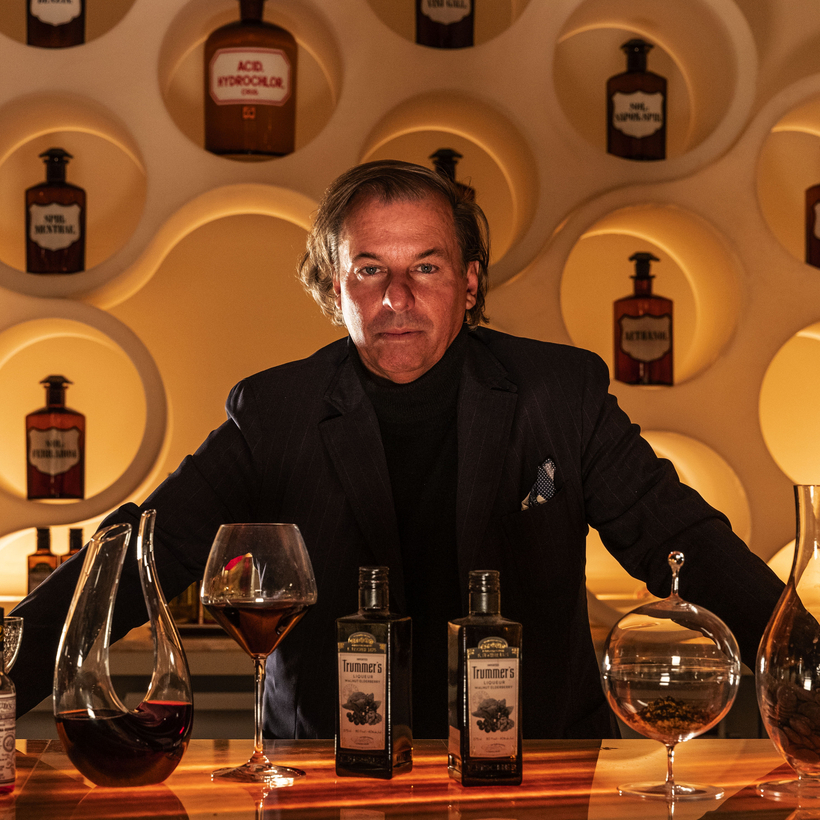Don’t expect a pyrotechnic display at Albert Trummer’s new cocktail bar. The Austrian bartender is best known for his run-ins with the New York City Fire Department at the apothecary-themed Chinatown speakeasy, Apotheke, where he used to douse the bar top in spirits and set them alight. Footage from The Real Housewives of New York City captured three-foot-high flames there in 2010.
After the episode aired, a raid by undercover fire marshals resulted in two days of community service for Trummer and the eventual shuttering of what had been, for a time, one of the hottest cocktail dens in New York. “They all thought I was a crazy maniac,” he says of the fallout. “It cost me a successful business.”

